How To Treat Choke In Horses
[easy-social-share]
Choke in horses occurs when food matter becomes stuck within the oesophagus and does not pass through into the stomach.
While not particularly common, it can be a very alarming condition to witness and deal with when it does occur.
Thankfully, unlike humans who will actually stop breathing when they choke, this isn’t the case with horses.
It is, however, important to get your horse the help he needs quickly.
Aside from the stress your horse will feel, we don’t want the blockage to cause any permanent damage as this can result in life-threatening issues.
Read on to learn what to do if you find a horse choking.
Choke is a medical emergency, remove feed and water and call your vet asap
What Are The Symptoms Of Choke In Horses?
We often see choke in horses soon after they have been fed. The following symptoms occur pretty quickly after feeding:
- A large volume of discharge from both nostrils, this could be a frothy white colour or stained green from grass. It usually contains food.
- Stretching the neck out in an elongated manner
- Cramps and tremors in the muscle of the neck
- Opening the mouth wide
- Coughing, gagging and retching
- Having an alarmed look or a look of confusion in their eyes
- Showing signs of sweating or discomfort that may mimic colic
What To Do If Your Horse Has Choke?
If you do notice that your horse is displaying the symptoms described above it is vitally important that you act quickly.
Follow these steps:
- The first thing to do is to remove all food and water and to not allow your horse to eat or drink.
- Allowing your horse to have more food will likely just add to the problem, and if you think you are helping by washing away the blockage, don’t be fooled. You risk causing your horse to get aspiration pneumonia, a potentially deadly infection of the lungs.
- Wipe your horse’s mouth out with a towel and remove any feed that is still present in their mouth.
- Watch that you don’t get bitten. Hold the tongue to one side with one hand and reach in to remove food with the other hand, this will prevent you from getting bitten.
- Once this is done, ring your vet immediately.
- Hoping that a choke will resolve on its own increases the risk of damage to the oesophagus and issues with aspiration pneumonia.
- Try to keep your horse and yourself calm.
- You don’t need to move him, but if he is alone having a friend brought near may help him settle.
- You can use downward towards the heart massage along the jugular furrow to help move the blockage along, it won’t do any harm, but again, it may not do anything.
Video: What To Do If Your Horse Has Choke
Can A Horse Die From Choking?
Sadly, while the actual choking episode is unlikely to result in death, the consequences of an unresolved choke certainly may.
If a veterinarian is unable to unblock the choke immediately then the longer the choke is present, the more risk there is of damage to the oesophagus muscle.
If after a couple of days of trying and the choke blockage is still present, your vet may suggest surgery to relieve the choke.
This type of surgery is fraught with danger as often the muscle of the oesophagus is compromised and may not heal well. Vets do not proceed to this readily, although I have had to do this in a particularly bad situation and we did have a good outcome.
Other risks of choke include aspiration pneumonia. This is especially common if the choke is present high up near the throat lash area.
Aspiration pneumonia occurs when the secretions and food that would normally go down the oesophagus, go down the windpipe (trachea) into the lungs instead.
There are lots of bacteria in these secretions that multiply in the lungs and cause a nasty pneumonia that can be very difficult to treat. Signs of aspiration pneumonia begin to be apparent from 24-48hours post choke.
Why Does A Horse Get Choke?
The vast majority of horses that get choke merely ate their meal too fast.
It may happen just on the off chance, and for most it is just shear bad luck.
Other times, it is because they have been given food that is of a size that can lead to a blockage. This includes treats such as apple, carrot, corn cobs or beet pulp.
Hay, chaff and grain are the most common food culprits involved with choke.
It is not uncommon to see instances of choke when the source of hay has been changed. Perhaps it is more fibrous and the horse isn’t chewing it as well as they could.
Horses who get into a feed area and eat dry pellets or beet pulp may suffer once the dry source of food expands with moisture from saliva. If the expansion occurs in the oesophagus then a blockage may occur.
Horses with poor dental health are prone to choke as they are unable to move their jaw appropriately to chew their food. It is very important that equine dental exams are performed regularly especially in our older horses.
We recommend 6 monthly dental exams for the older horse as their teeth need frequent maintenance.
RECOMMENDED FOR YOU:
Dental caries in horses: How to prevent holes in your horse’s teeth?
Hey Doc: Equine dentistry with equine dental vet Dr Olivia James
You may need to consider adapting the diet of older horses to accommodate any dental health issues they have. This may mean providing a sloppy/wet diet so that they don’t suffer from oesophageal obstructions or colic due to the inability to chew their food properly.
If you would like to discuss your horse’s diet our online vets are only to happy to assist.
Some horses that are stabled try to eat their bedding of straw or shavings and this too can result in choke. For these horses, a muzzle may help to prevent this.
On rare occasions a horse may suffer from a neuromuscular issue or a tumour that can cause repeated episodes of choke. Please discuss with our vets if this is having multiple bouts of choke and we can formulate a plan for your to give to your veterinarian.
Complications Of Choke In Horses
As mentioned above the vast majority of cases of choke in horses resolve with veterinary intervention with no long term complications.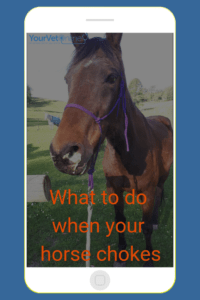
Those that are not able to be resolved in a timely fashion often damage the muscle of the oesophagus and form an ulcer in the muscle. In severe cases the oesophagus may become necrotic and perforate.
Aspiration pneumonia is the other common sequelae to choke in horses. It is wise that you watch your horse closely following an episode of choke and take it’s temperature daily for at least 5 days.
A temperature above 38.5°C (101°F) with your horse having a dull look and off feed would indicate a need to have your vet come and examine your horse.
It is usual for signs of aspiration pneumonia to occur within 24-48 hours of choke.
Has your horse ever had choke? Tell us about your experience in the comments below. If you found this article useful, please give us a like and share with your horse mad friends!
[easy-social-share]

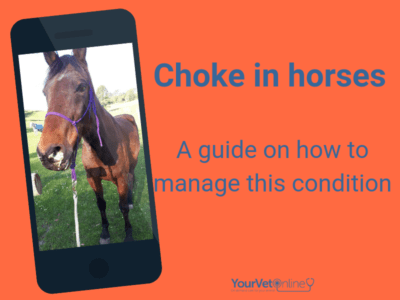

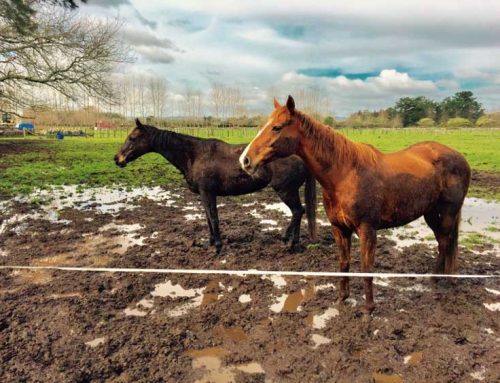
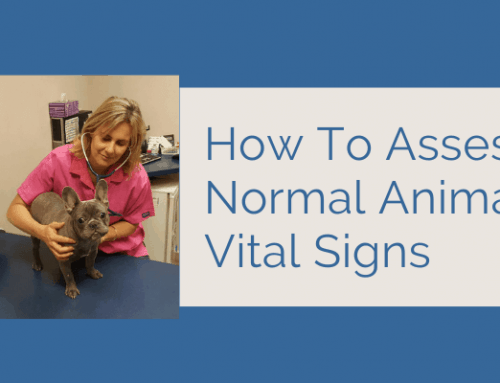
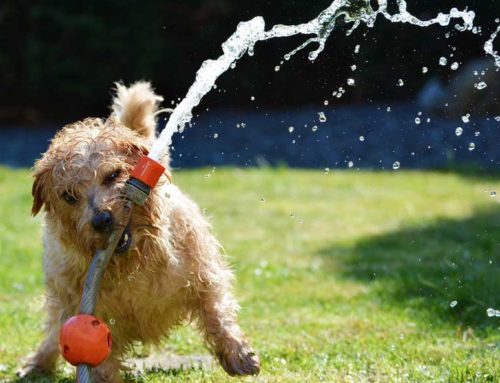
Thank you for this calming informative video! My mare choked tonight but I feel she resolved it. How
long after the horse resolves the choke, can it have watery feed and water? Thank you!
I had a horse choke for the first time tonight. This article informed me to watch for pneumonia in my horse over next few days. Thank you for having this online resource available.